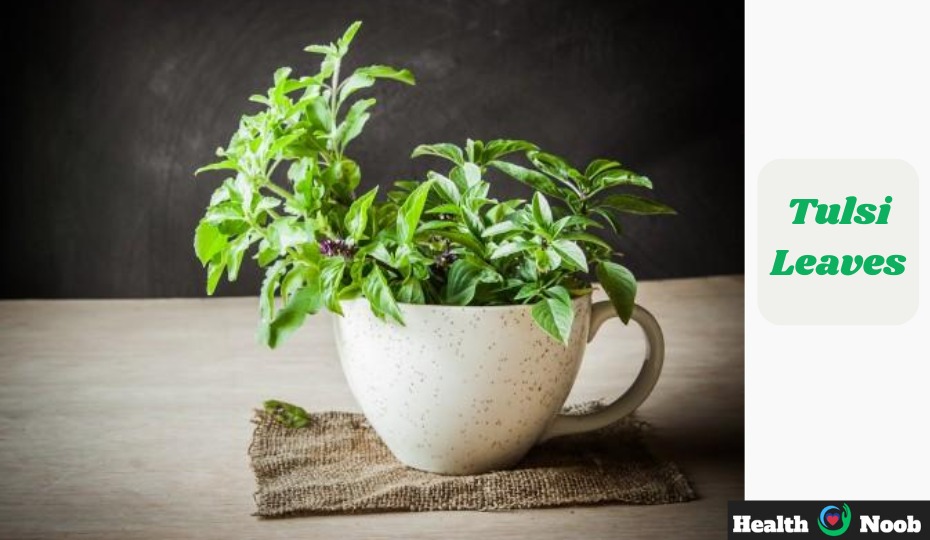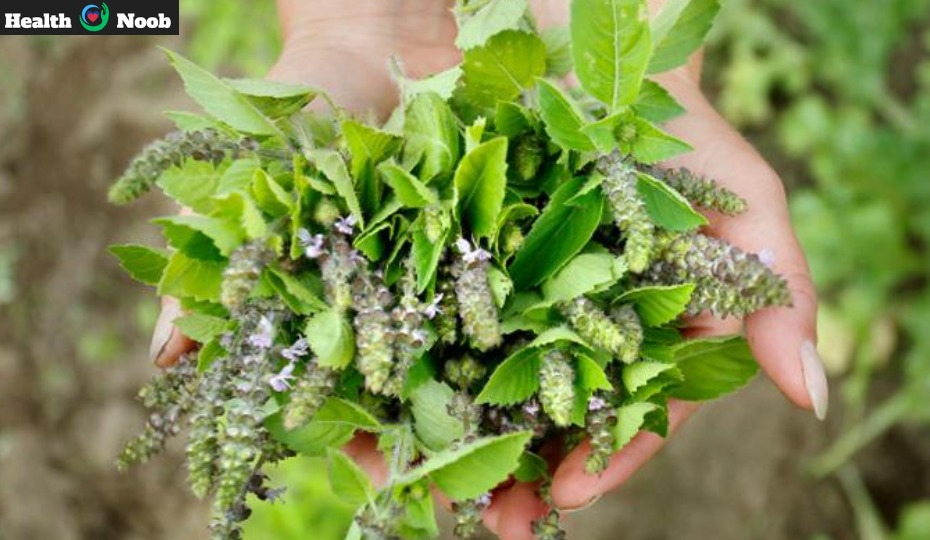Tired of being sick? Have you spent so far this winter with cold or cold symptoms that don’t want to leave your body? Did you know that the best way to prevent colds, and to cure them as soon as they appear, is to strengthen your Immune System? It is better than any treatment for the disease itself, it is prevention and at the same time cure, it is treating the problem from the root!
Tulsi is good for health, and its benefits have been cherished for centuries. In the hustle and bustle of modern life, finding natural remedies to nurture our well-being is more crucial than ever.
Tulsi , also known as Holy Basil or Purple Basil , is one of the Ayurveda plants as popular as turmeric and ginger. In fact, in India it is known as “The Queen of Herbs” for its numerous properties.
This plant has been studied and is now known to be an adaptogenic plant. . Adaptogenic plants are those that help balance or normalize the body’s energy responses, helping to resist stressful situations that can affect the functioning of our body in a negative way.
What is Tulsi or Holy Basil?
Tulsi (Ocimun Sanctum or Ocimun Tenuiflorum) is an Ayurvedic plant with wide therapeutic applications that has been used for more than 5,000 years to promote health thanks to its regenerative properties and as a support and/or solution to stress. natural detoxification of the body, increase resistance and energy, restore balance and harmony.
Its name, Tulsi or Tulasí , means ” The Incomparable ” and it is a highly revered plant in Hindu religious traditions as it is considered a manifestation of the Divine Mother on Earth.
Basil is suspected to be native to Asia although today it grows in numerous tropical climates around the world. Hindus believe that the Tulsi plant is a form of the goddess Lakshmi.. In fact, Hindu tradition says that there is no amount of gold that can surpass the power of Krishna. Tulsi is good for health in numerous ways, offering a natural path to well-being for those who seek it.
Tulsi: Properties and Health Benefits
Vitamins A, C, and K can be found in this plant (see list below). Iron, calcium, phosphorus, manganese, and other minerals, as well as phytonutrients like chlorophyll.
So, it can be eaten to keep your bones and heart healthy, fight stress and fatigue, improve brain function, keep your digestive system healthy, and keep your metabolism healthy.
In addition to keeping hormone levels in check, it has a calming and relaxing effect that doesn’t make you sleepy. As a result, it helps people who are under physical, mental, or metabolic stress.
Holy Basil helps the body’s organs and tissues deal with stress, heavy metals, and pollution.
It has been shown that tulsi can help fight metabolic stress by keeping blood sugar, blood pressure, and lipid levels normal. When it comes to mental stress, its antiolytic and antidepressant properties work (without making you sleepy), and it also improves memory and brain function.
Because of this, this plant can be used for the following:
Stress
This plant is said to have adaptogenic qualities, which means it helps the body deal with stress, whether it’s mental or physical. It also has effects on the brain that are a lot like those of drugs. In fact, we can say for sure that this plant is a powerful stress reliever. People can handle stressful events in a calm way because it helps their bodies work properly.
Anti-inflammatory
It is normal for purple basil to stop an enzyme called COX-2 from working. This enzyme is found in all of our tissues and inactive cells. When we get hurt, sick, or infected, this enzyme gets turned on, which causes pain and inflammation.
Compounds in this plant, like eugenol, cirsilineol, cirsimaritine, isotimusine, isothymonine, apigenin, and rosmarinic acid, work against inflammation in a way similar to ibuprofen, naproxen, and aspirin. This is why they help reduce pain and inflammation.
Antibacterial
Tulsi is also surprising because it can kill germs. It works especially well against staphylococci, enterococci, and bacteria that are resistant to antibiotics (pseudomonas bacteria).
When used to treat gonorrhea, this plant’s product can work just as well as penicillin or ciprofloxacin. It can also fight viruses, which helps protect against herpes.
Cognitive Function
Researchers have found that tulsi improves memory by blocking acetylcholinesterase and raising acetylcholine levels. This is very helpful in treating Alzheimer’s disease and geriatric dementia, among other cognitive disorders.
Cardiovascular health
It has a lot of phenol, which is good for the heart because it can lower inflammation in heart cells after a heart attack. It also keeps heart diseases away by blocking myeloperoxidase, an oxidative enzyme that builds up plaque in the vessels.
It is also strongly suggested for people with high cholesterol and fat levels, to control high blood pressure, and to make the blood flow better.
Bone Health
It helps the bones absorb calcium better, which makes it very good for keeping bones healthy. It can also kill germs in the mouth, which helps keep cavities, plaque, tartar, and bad breath away. It can also help heal canker sores.
Immune system
Purple basil makes our defense systems work better. The tests confirmed that taking 300 mg of Tulsi extract every day in the form of capsules made the immune system work much better in just four weeks.
Antioxidant
Tulsi is thought to help people live longer. Free radicals are made by heavy metals like cadmium, but this plant has been shown to be very good at counteracting them. It also gets the liver and kidneys working again.
Digestive system
In this plant we find good support for digestive health. Tulsi keeps gut ulcers safe and helps them heal. It is also an excellent stomach protector since it increases the protective mucosa of the stomach, in addition to protecting the liver from damage that can be caused by toxins.
Urinary tract
To get rid of toxins, tulsi is great. Over the past few hundred years, its seeds have been used to treat bladder problems. By taking its substance for about 6 months, you can even fight kidney stones because it lowers uric acid and cleans the kidneys.
Cancer
If you are under the care of a doctor and have been given tulsi, you can use it to help treat cancer or keep it from happening.
Regularly taking Tulsi makes it less likely that someone will get cancer. Researchers released their findings in the journal Nutrition and Cancer. They found that Tulsi can sometimes stop liver and lung cancer that is caused by chemicals. It can also help with mouth and skin cancer because it boosts the body’s antioxidants and kills cancer cells, which stops them from spreading.
Fever
In Ayurveda, Tulsi is widely used to reduce fever . Being an antibiotic, germicide and disinfectant, it protects us against viruses and bacteria, also helping to improve respiratory problems caused by flu and colds , such as nasal congestion.
In fact, scientific studies have confirmed that this plant is anti-asthmatic and makes breathing easier.
Skin Health
In the beginning, it was mostly used in tea to lower metabolic stress. But now, more and more new beauty items are being made with it to take advantage of all the good things it does for the skin. It can kill bacteria, fungi, and inflammation, which helps clean the blood and get rid of toxins and bacteria from the skin. This makes it good for skin that is prone to inflammation and flaws like acne and pimples.
Additionally, it helps get rid of redness and scars, cleans the skin deeply, and works great as an exfoliant because it gets rid of both dirt and oil, making it the perfect herb for people with oily skin. Tulsi is good for health, and that includes your skin’s health too!
It has natural astringents that make it good for all types of skin, even the most sensitive ones. The essential oils in it feed and hydrate the skin and make it more even. Besides that, it has adaptogenic properties that make the body better able to handle stress.

What uses can we give to Tulsi?
We can use holy basil to treat:
- Colds and flu
- Sore throat
- Cough
- Fever
- Nasal congestion and chest congestion
- Detoxifying, cleansing and purifying the blood, liver and kidneys
- Bronchitis
- Asthma
- Diarrhea
- Stomach disorders
- Headaches, migraines
- Inflammation
- Arthritis
- Heart diseases
- High cholesterol
- Skin disorders: eczema, acne, psoriasis…
- eye diseases
- Heavy metal poisoning
- Hepatitis
- Tuberculosis
- Malaria
- Dengue
- Swine flu
- Bacterial and viral infections
- To increase defenses, enhance the immune system
- Dental health (cavities, bacterial plaque, periodontitis, canker sores…)
- Insect repellent
- Insect bite treatment
- Anti-stress, calming, relaxing
- Reduce uric acid levels
- kidney stones
- Balance stress-causing hormones
- Diabetes
- Prevent some types of cancer
Recommendation
Holy basil is not recommended because the claimed health effects have not been confirmed by high-quality human studies.
Holy basil is probably harmless to most people; however,
- People with type 2 diabetes, hypothyroidism, or who are going to have surgery should stay away from holy basil. This also goes for women who are trying to get pregnant.
- Before taking holy basil, people who are on certain medicines (like those that lower blood sugar or stop blood clotting) should talk to their doctor.
FAQ- Tulsi Is Good For Health
How is Tulsi beneficial for health?
Tulsi offers a myriad of health benefits. It boosts immunity, aids in digestion, promotes respiratory health, and supports mental well-being by reducing stress and anxiety.
How can I incorporate Tulsi into my daily routine?
Tulsi is good for health. You can consume Tulsi in various forms, such as Tulsi tea, Tulsi capsules, or fresh Tulsi leaves added to your meals or salads. Tulsi essential oil can also be used for aromatherapy.
Does Tulsi have any side effects?
While Tulsi is considered safe for most people, some individuals may experience mild side effects such as nausea, heartburn, or allergic reactions. It’s essential to use Tulsi responsibly and discontinue use if any adverse reactions occur.
Is tulsi good for weight loss?
Certainly! Here’s a rewritten version:
yes,, tulsi leaves have been found to stimulate the body’s metabolism, making calorie burning more efficient. Additionally, tulsi naturally enhances digestion, which can contribute to weight loss.
Final Verdict: Tulsi Is good for Health
Finally, Tulsi isn’t just any plant; it’s a treasure trove of health benefits. Its many health benefits, such as boosting the immune system and calming the mind, make it a valuable friend in our quest for wellness. Including Tulsi in our daily lives can be a fun way to improve our overall health. That’s why we should enjoy the health benefits of Tulsi, whether we’re drinking a hot cup of tea or adding fresh leaves to our food. Tulsi is good for health, and adding it to your life can help you live a more healthy and peaceful life.






